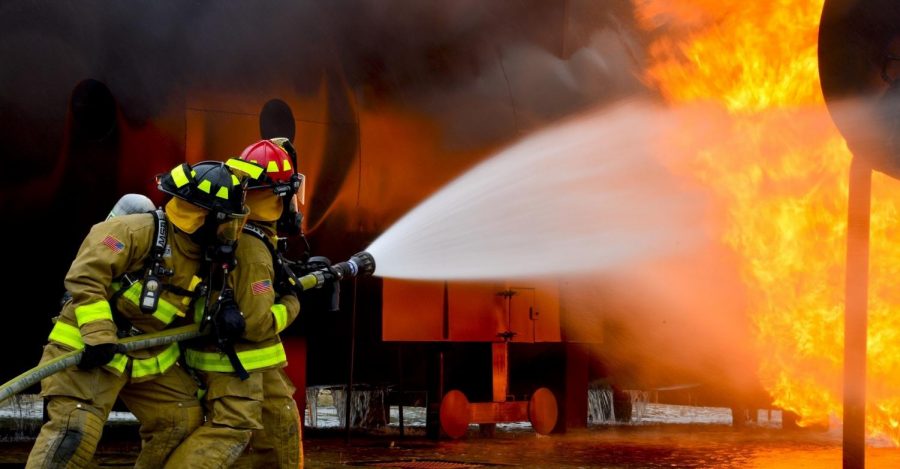Explosion Rocks Beirut and Port, Threatening Supply of Goods
A massive explosion rocked Beirut, Lebanon on August 4, with at least 78 people reported dead, and over 4000 people injured and missing. The death toll is expected to rise as rescue teams dig through the rubble left by the explosion. The explosion struck with a force of a 3.5 magnitude earthquake expelling a red cloud that was seen over Beirut in the aftermath of the blast. Homes up to 10 kilometers away from the explosion were damaged. Residential and commercial buildings have been shattered. The cause of the explosion has not been determined yet but there are many rumors including a fire caused by 2,700 tons of ammonium nitrate and a terrorist attack as to what the root cause was.
Initially, the cause of the explosion was blamed on a major fire at a warehouse for firecrackers near the port. However, Prime Minister of Lebanon Hassan Diab later said in a statement that the estimated 2,750 tons of ammonium nitrate that was said to be stored at the warehouse for the past six years had been confiscated years ago. Boaz Hayoun, owner of the Tamar Group, which works with the Israeli government on public safety said that fireworks could have been a factor setting off a bigger blast.
“Before the big explosion, …in the center of the fire, you can see sparks, you can hear sounds like popcorn and you can hear whistles,” Mr. Hayoun said during a press release. “This is very specific behavior of fireworks. It looks like an accident. There was a fire preceding the explosion, which is not an attack. It’s very common to see fires detonate explosives.”
When asked about the cause of the explosion, U.S. President Donald Trump said that the blast seemed to be “a bomb of some kind” and that “It look[ed] like a terrible attack.” There is no evidence to support this from experts. Other world leaders have not suggested that the explosion was a bomb or an attack.
With Lebanon already in the middle of an economic crisis, this blast put the country in more economic shock. Lebanon has been dealing with anti-government protests since late last year when the government planned taxes on gasoline, tobacco, and Voice over Internet Protocol (VoIP) calls on applications such as WhatsApp and Skype. Prior to the COVID-19 outbreak, the World Bank estimated a 45 percent poverty rate in 2020. Now, that poverty rate has increased to 75 percent. 177 new cases of COVID-19 have been reported since the explosion. The explosion destroyed the country’s largest port, making it harder to store and import food and aid. Lebanon imports up to 80 percent of its food needs, 60 percent being at the Beirut port. Imports at Lebanon’s second port in Tripoli will be increased to try and make up for the products destroyed. According to Mena Commodities, about 85 percent of the country’s imported cereals were stored in the facility. Silos that contain the national grain reserve have also been destroyed. An estimated $5 billion worth of damage was caused.
Hospitals received over 3000 patients in a few hours. Many patients were transported to hospitals outside of Beirut due to hospitals in the city lacking the necessary capacity. Donations of blood and generators to keep their lights on have been requested. President Michel Aoun said in a council statement that he has decided to release 100 billion Lebanese pounds in emergency allocations from the 2020 budget.
“They were running low on certain types of antibiotics, they were completely out of tetanus shots, which of course they need to give everyone who has one of these types of injuries – and of course everyone had a debris injury,” Molana-Allen said in an interview with The Guardian.
Many non-profit organizations including the Lebanese Red Cross, Impact Lebanon, and 3QA have set up disaster relief funds for the Beirut explosion. Triage and first aid stations were set up around the port of Beirut to help people with noncritical injuries. Temporary shelters with food, hygiene kits, and basic needs were distributed to 1000 families who lost their homes. The Lebanese Red Cross said that 75 of their ambulances and 375 EMTs have responded to the crisis. The group said that they were receiving thousands of calls on their emergency line.
“What we are witnessing is a huge catastrophe,” George Kettani, the head of Lebanon’s Red Cross, said to Beirut’s local news channel, Al Mayadeen. “There are victims and casualties everywhere.”
Neighboring countries including Qatar, Iraq, and Kuwait have sent medical assistance to Lebanon. Lebanon’s National News Agency (NNA) reported that Qatar will send supplies to outfit two 500-bed field hospitals on Wednesday, August 5. Russia is sending five humanitarian planes carrying a mobile hospital, rescue teams, and doctors. France is sending 55 emergency medical technicians aboard two planes.
“We are with the people and the Government of Lebanon during this difficult time and stand ready to help and provide any assistance and support.” The United Nations Interim Force in Lebanon (UNIFL) Head of Mission and Force Commander Major General Del Col said in a statement.
Mr. Diab has declared a national day of mourning for the victims of the explosion. Lebanon’s Supreme Defence Council is in consideration of declaring a two-week state of emergency and handing over security responsibility to military authorities in Beirut. The US embassy in Beirut released a statement advising people to wear masks and stay indoors.

Class of 2023
Hey, I'm Amy! I am currently the Sports Editor for the Horizon! Outside of the press room, my hobbies include playing soccer and running...












